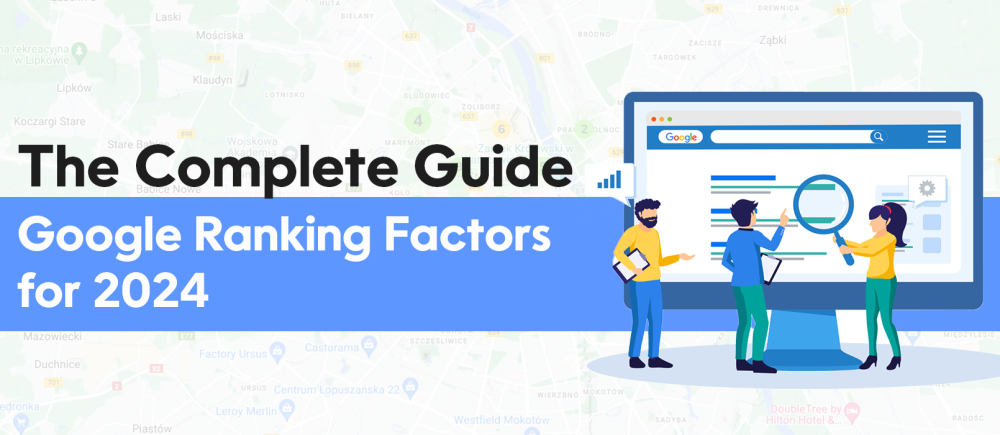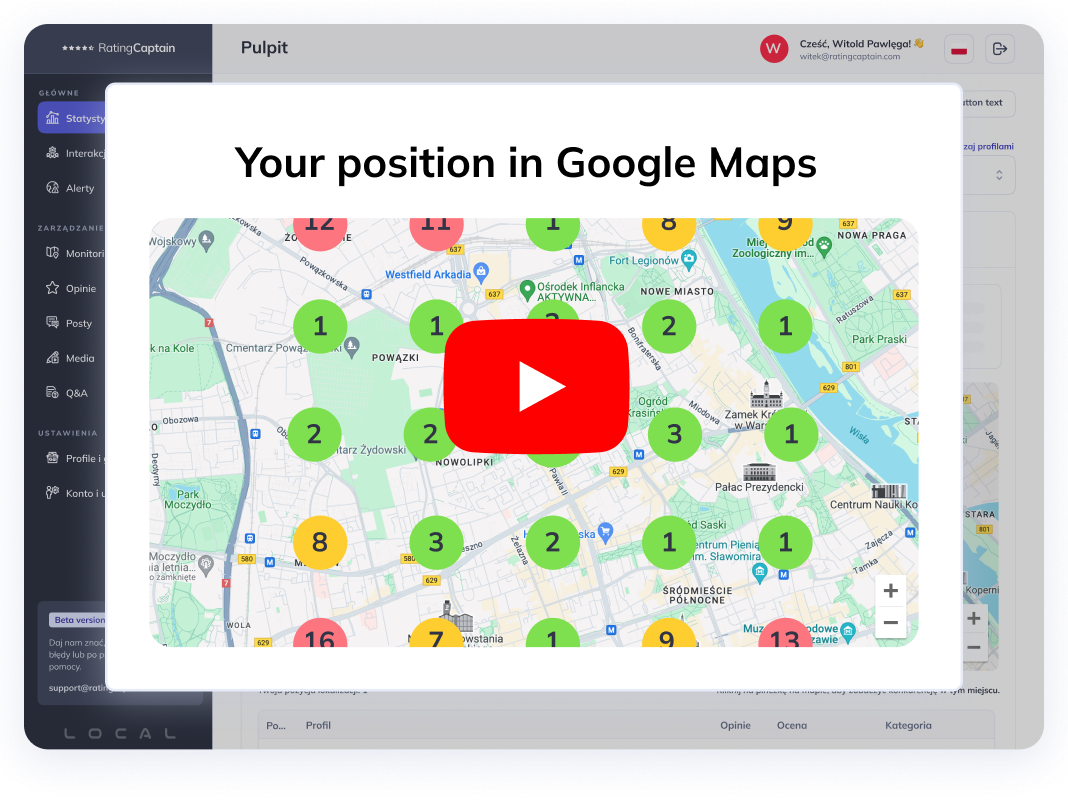

SEO Ranking Factors 2024: The Complete Guide to Mastering Google Rankings

Table of contents
Understanding the intricacies of Google’s ranking factors is critical for any SEO strategy. In 2024, optimizing for these factors can significantly enhance your search engine visibility, leading to higher rankings and more organic traffic. This comprehensive guide delves into the key ranking factors you need to know, offering actionable insights to boost your SEO efforts.
What are the Most Important Google Ranking Factors for 2024?
Understanding the most important ranking factors is the foundation of a successful SEO strategy. These factors are essential in helping your business appear higher in Google search results.
Key Ranking Factors
- Content Quality: High-quality, relevant content is a primary ranking factor. Google favors comprehensive, informative, and engaging content that answers users' queries.
- Backlinks: The quantity and quality of backlinks pointing to your site are critical ranking factors. Backlinks from authoritative and relevant sites boost your credibility.
- User Experience (UX): Google measures user experience through metrics like page load time, mobile-friendliness, and site navigation.
- Technical SEO: Factors such as website architecture, HTTPS security, and schema markup play a significant role in rankings.
- Mobile-First Indexing: With the majority of searches coming from mobile devices, Google prioritizes mobile-friendly sites.
- Local SEO: For businesses with a physical presence, local SEO is crucial. This includes optimizing your Google Business Profile and acquiring local citations.
How Can You Optimize On-Page SEO for Better Rankings?
On-page SEO is critical for improving your site’s visibility in search engine results. It involves optimizing individual web pages to rank higher and earn more relevant traffic.
On-Page SEO Techniques
- Title Tags and Meta Descriptions: Ensure that each page has a unique and descriptive title tag and meta description that include target keywords.
- Header Tags: Use header tags (H1, H2, H3) to structure your content and include keywords. This helps search engines understand the hierarchy and relevance of your content.
- Image Optimization: Optimize images by using descriptive file names and alt text that includes keywords. This improves accessibility and SEO.
- Internal Linking: Use internal links to guide users to related content on your site. This improves navigation and helps search engines understand the structure of your site.
What Role Do Keywords Play in SEO Ranking?
Keywords are the foundation of SEO. They help search engines understand the content and relevance of your web pages.
Keyword Optimization
- Keyword Research: Use tools like Google Keyword Planner to identify relevant keywords with high search volume and low competition.
- Keyword Placement: Incorporate keywords naturally into your content, title tags, meta descriptions, headers, and image alt text.
- Long-Tail Keywords: Target long-tail keywords, which are more specific and less competitive. They often have a higher conversion rate.
How Do Backlinks Influence Google Ranking Factors?
Backlinks are one of the most important ranking factors. They serve as endorsements from other websites, signaling to Google that your content is valuable and trustworthy.
Building Quality Backlinks
- Content Creation: Create high-quality, shareable content that naturally attracts backlinks.
- Guest Blogging: Write guest posts for reputable sites in your industry. Include backlinks to your site in your author bio or within the content.
- Broken Link Building: Identify broken links on other websites and offer your content as a replacement. This helps build relationships and acquire new backlinks.
Summary
- Content Quality: High-quality, relevant content is essential for ranking well in Google’s search results.
- Backlinks: Building a strong backlink profile from authoritative sites boosts your SEO.
- User Experience: Factors like page load time, mobile-friendliness, and site navigation significantly impact your rankings.
- Technical SEO: Ensure your site is technically sound with fast loading times, mobile optimization, and secure HTTPS.
- Keyword Optimization: Conduct thorough keyword research and incorporate keywords naturally into your content.
- Negative SEO Practices: Avoid keyword stuffing, duplicate content, cloaking, and buying links.
- Monitoring Tools: Use Google Analytics, Google Search Console, and rank tracking tools to monitor and improve your SEO performance.
By understanding and implementing these critical Google ranking factors, you can enhance your SEO strategy and achieve higher rankings in 2024 and beyond.
Please rate this article
Local SEO-Werkzeug für Agenturen
Automatisieren Sie Ihr lokales SEO und verfolgen Sie die Sichtbarkeit in Google Maps




